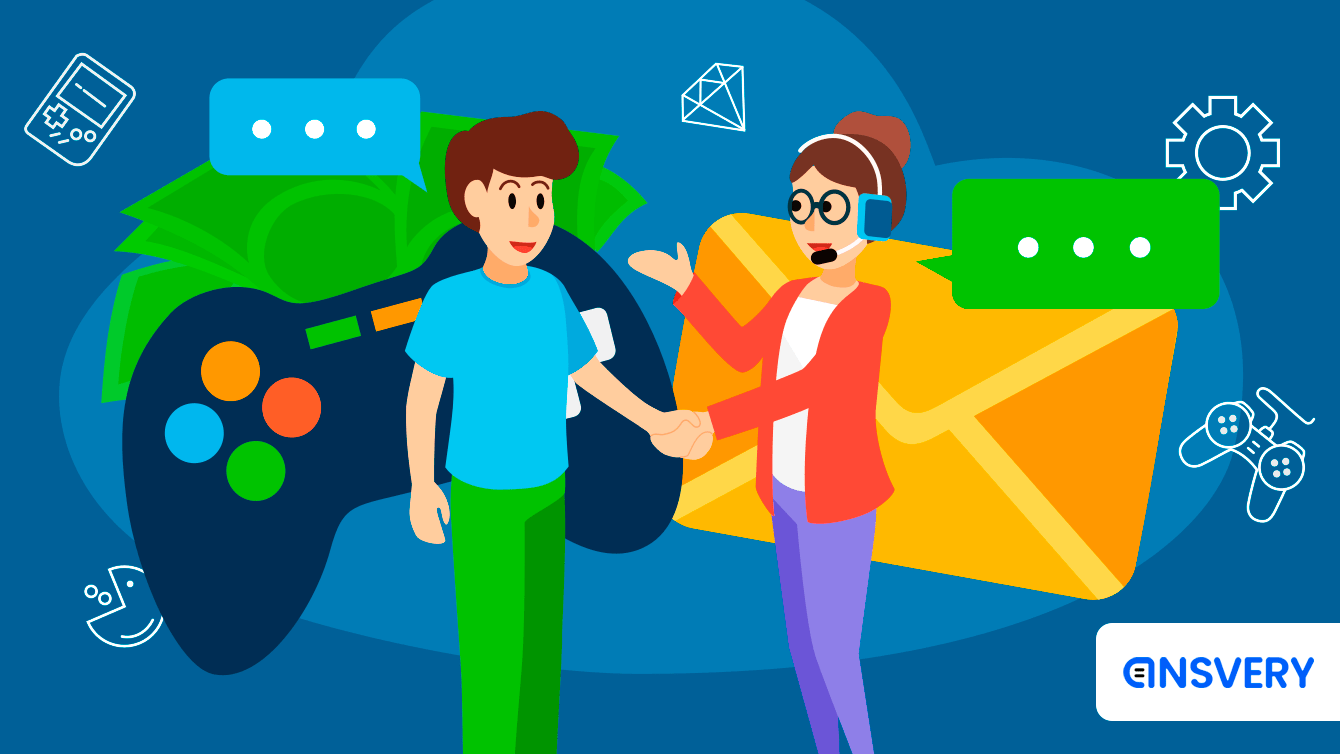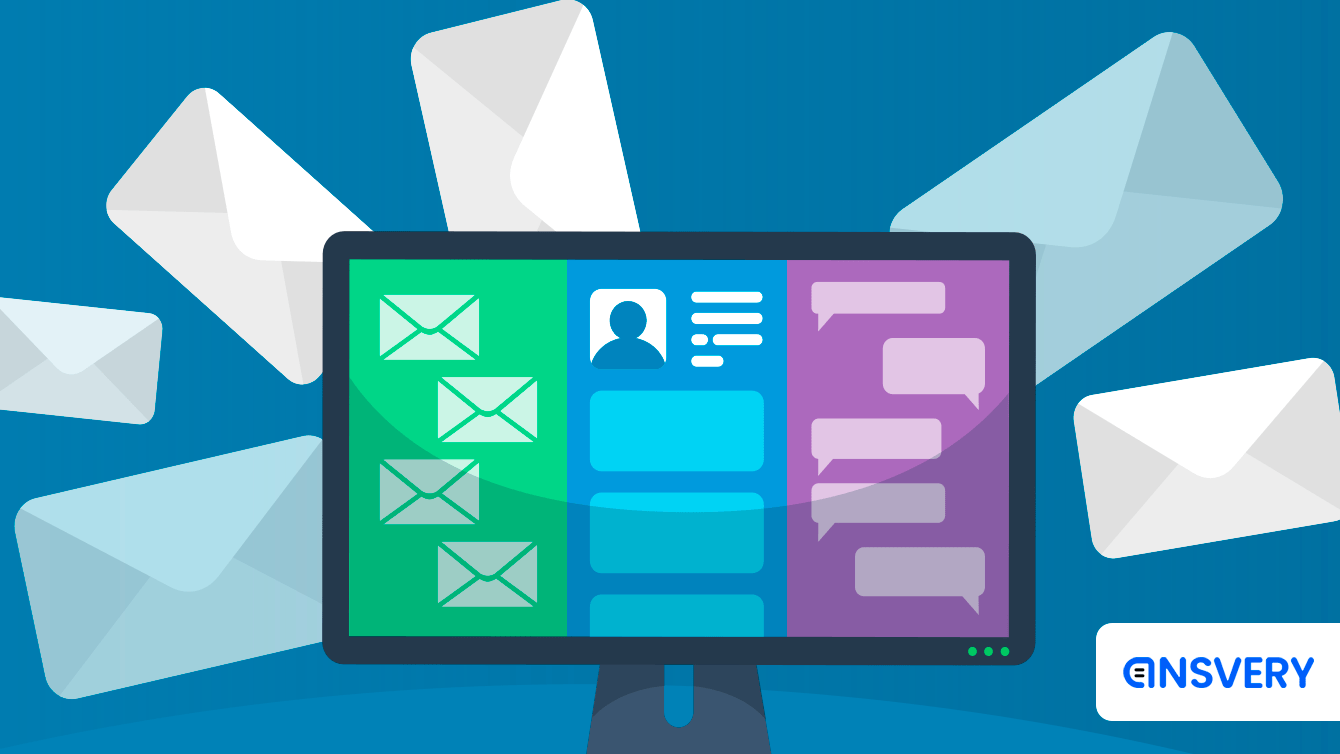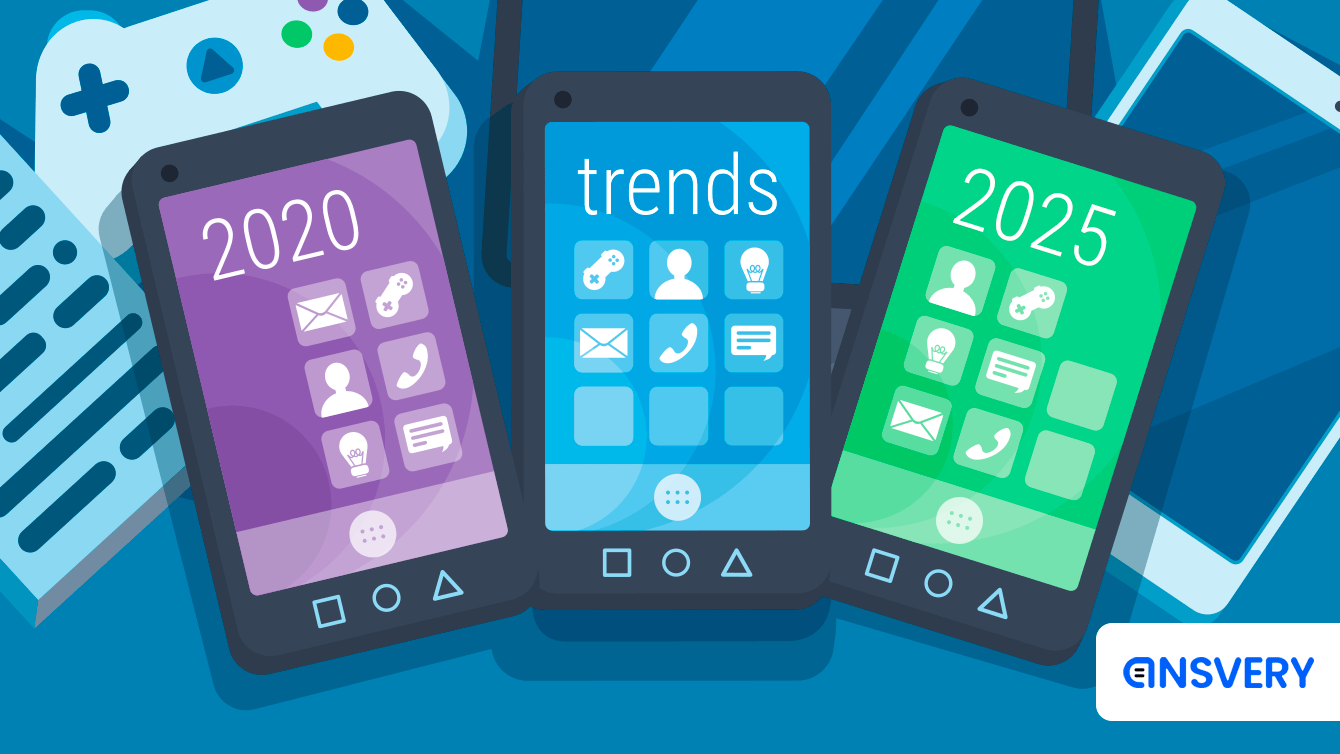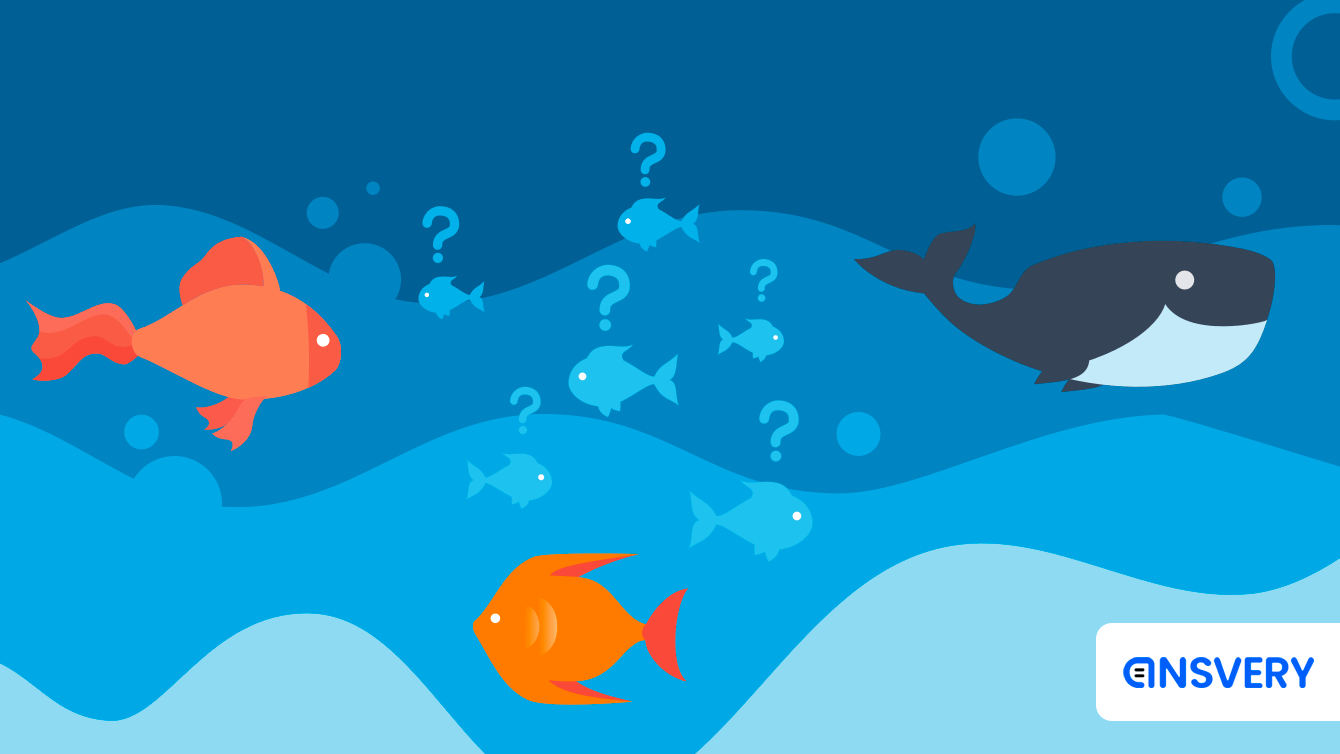Useful Tips on Providing Tech Support to Paying Customers
Welcome to the last article in a series on mobile app and game support by Ekaterina Rogacheva from Azur Games, written in collaboration with Ansvery.
Last time we talked about why support is important, what the reactive and proactive approaches to tech support are, how support can positively affect your users' experience, and how to collect data through support and hand it over to the development team.
In this article we’re going to talk about the specific features of supporting paying users and share some tips on how to make their support experience as pleasant as possible.
Specific features of support for paying users
Paying users are people who have made at least one purchase in your game. They're among the most loyal and engaged players, so you should pay close attention to their support experience.
“It’s important to remember that paying users used to be non-paying users. That’s why it’s best to get to know your users first, learn how to communicate with them, and only then make VIPs a separate category. Paying users want to feel special when it comes to service because they’ve invested in your product, but in general both categories are very similar to each other,” says Anna Bashkirova, head of Ansvery’s outsource support team.
So, which specific features will you encounter when handling requests from paying users?
-
Paying users contact support more often than other players. Many of them become regulars and will sometimes even request a specific agent to handle their requests.
-
Paying users are more demanding when it comes to the response quality, communication style, and involvement of their support agent.
-
In addition to regular bug reports, paying users often share their thoughts on the project's development, give feedback on new features, and sometimes even ask for advice — be ready for nonstandard requests.
-
Since most paying users are highly engaged players, they're apt to ask very tricky questions and notice the tiniest faults in the game, so the agents who interact with them need to be experts and know every little nuance of the project.
How should support agents interact with paying users?
Here are a few tips that can help make your interactions with paying users as effective as possible.
1. Assign specific agents to handle requests from paying users
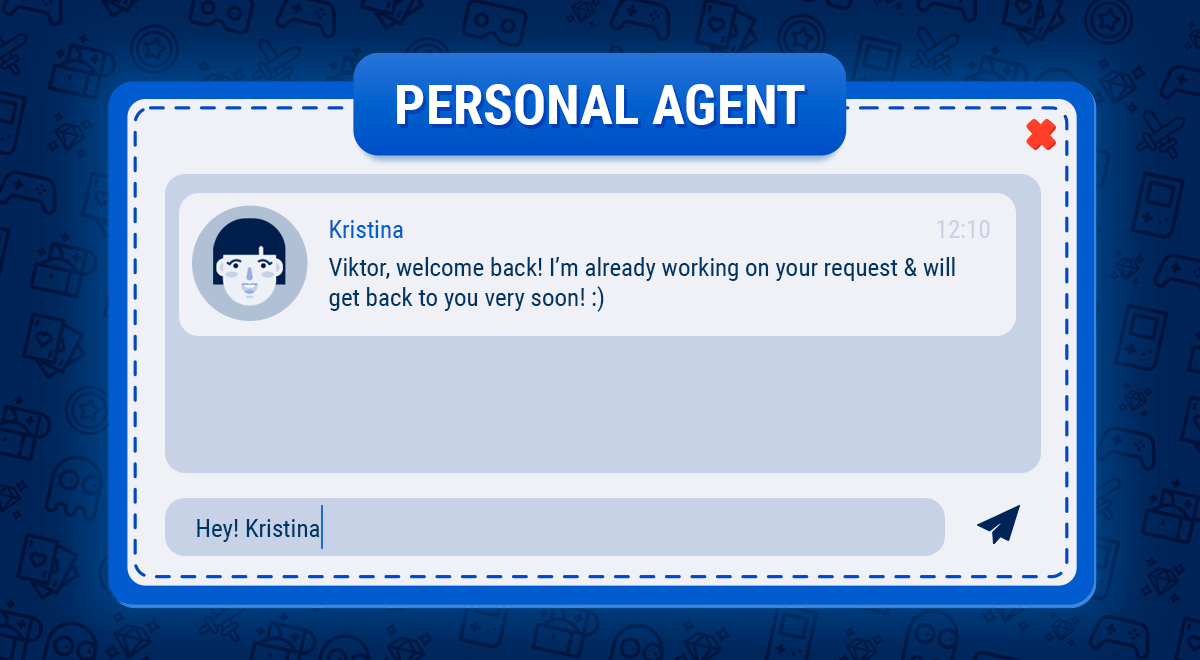
As we have mentioned earlier, paying users contact tech support more frequently than other customers. Many of them create requests on a regular basis because they’re more engaged with the game and are interested in its ongoing development. We've had plenty of cases where paying users have asked to be matched with a specific agent they spoke to earlier. Because of this, we recommend assigning certain agents to work specifically with VIPs.
This will allow you to monitor and manage the average response time for a certain category of users, since the assigned agents won’t be distracted by other cases.
-
You'll also have the opportunity to assign agents to specific VIP customers. This will improve service quality and make these users feel more comfortable when interacting with tech support.
-
Handling requests from paying users demands impeccable knowledge of the project and extensive tech support experience, so working exclusively with VIPs can be a great opportunity for specialists to grow.
Anna Bashkirova adds that creating prioritized or separate lines of support is only feasible for companies that have a fairly large request volume; otherwise specialists run the risk of having no requests to handle. For relatively small teams, a more universal approach where “everyone does everything” makes more sense.
2. Don’t make paying users wait
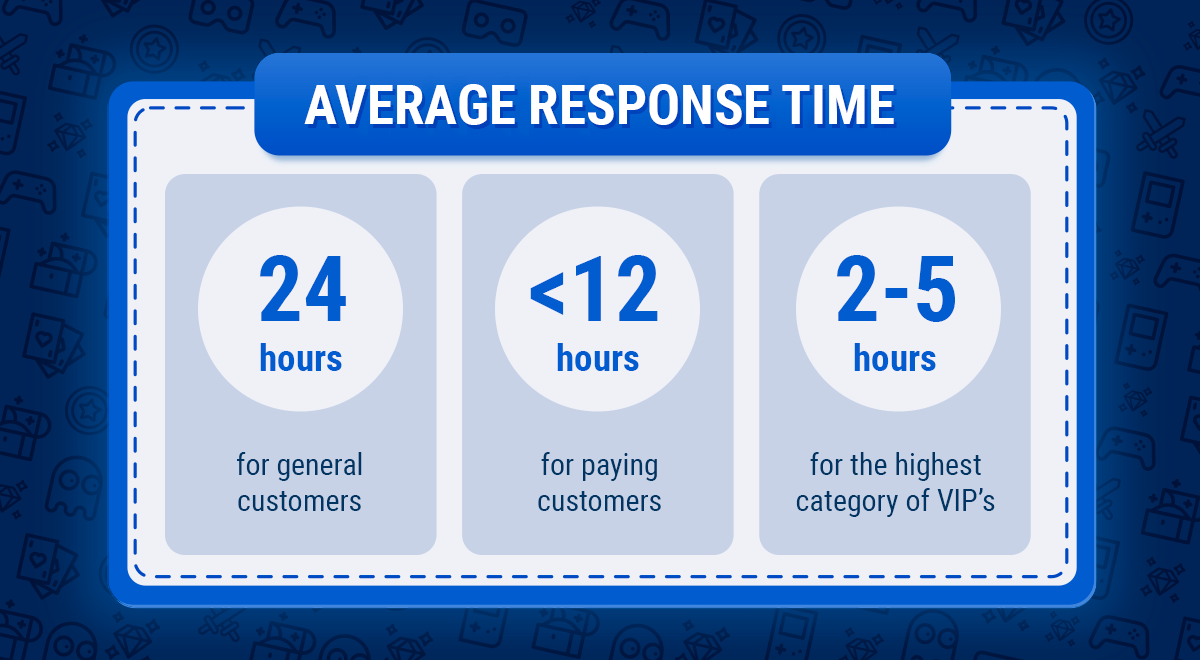
Once their request has been submitted, people who have made a purchase in your app expect to get a response from support as quickly as possible. If you make a paying customer wait a long time, you run the risk of decreasing their loyalty, losing out on future payments, and sometimes even provoking them to request a refund. If your average response time is 24 hours, then for paying customers it should be at least half that, and for the highest category of VIP’s it should ideally be no more than 2-5 hours.
Assign paying users their own tags based on the amount of money they've invested. For example:
-
VIP3 ($500 or more)
-
VIP2 ($100-499)
-
VIP1 ($5-99)
This way you’ll be able to sort paying users into separate categories, determine the desired average response time for each category, and monitor whether your agents are hitting these targets.
3. Provide compensation
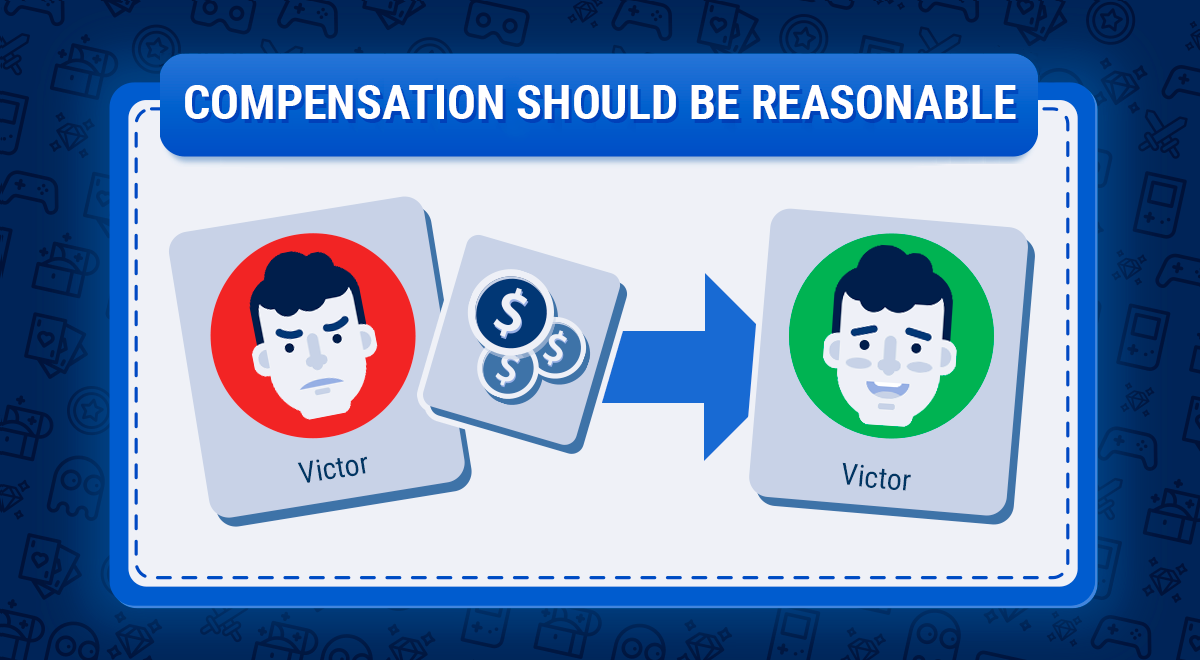
If a paying user has encountered an issue in your game (e.g. they dislike the latest update or are dissatisfied with their tech support experience), there's a chance they might ask for a refund. In these cases, there’s a highly effective way to decrease these users' dissatisfaction: just offer them compensation.
Here are some of the most frequent cases and how compensation can be calculated for each of them:
-
Dissatisfaction with new features leading to a potential refund request -> do your best to keep the player loyal and prevent them from requesting a refund by providing them with in-game compensation equal to about 5% of the money they've invested in the game
-
Request from a loyal paying player to provide them with some sort of a bonus for their investments -> give them in-game currency, premium access, or some other in-game object equal to about 1-2% of the money they've invested in the game
-
Waiting too long for a problem to be resolved (for example, if your conversation lasts a few days, which usually occurs when restoring lost progress) -> compensate the player with in-game currency, premium access, or some other in-game object equal to about 2-5% of the money they've invested
Anna Bashkirova believes that it's a mistake to treat paying and non-paying players as though they exist in different realities: “They interact with each other and share their experiences. I always recommend approaching compensation carefully. First of all, it accustoms players to the idea that compensation is normal, and then, if a situation arises in which you aren't willing to compensate them for an inconvenience, a conflict will become inevitable. Second, players who have received compensation will share their good fortune with the world, and non-paying users will come to you asking for the same compensation. This can lead to a tricky situation. In the end, we say “yes " to compensation, but we also adjust it based on certain factors.
4. Stick to an informal communication style
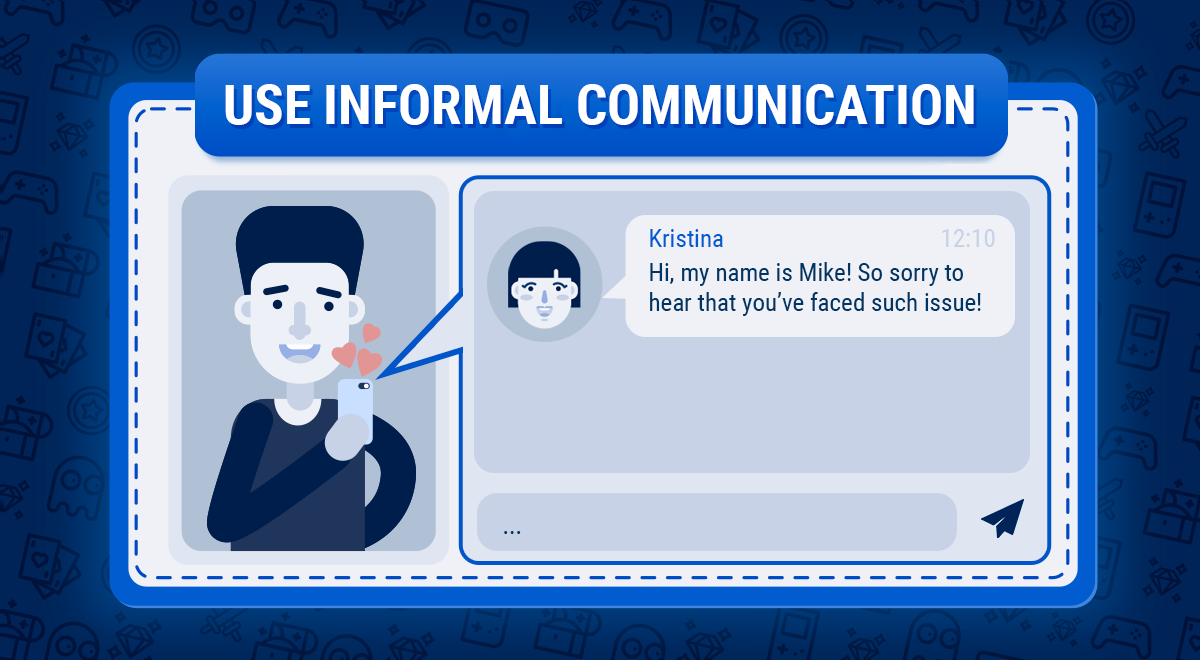
We recommend avoiding an overly formal communication style. If you're too formal, players might get the impression they're talking to a robot rather than a person. In our experience, this impression greatly complicates the communication process and can frustrate players. This is extremely important when interacting with players who have invested in your project because they expect an especially high level of service quality. You can read more about an informal communication style in this article.
Maria Filippova, an Ansvery learning and development specialist, also adds that the degree of formality of your response should depend to a great extent on the nature of the particular situation. For example, according to a certain study, users generally prefer an informal style. However, their overall preferences can change if they submit an urgent complaint or if support has declined their application. In cases such as these, communication elements that are overly informal can be perceived as negligence on the part of the support agent. There are also age-based and cultural aspects – in some cultures, the older generation expects the utmost respect, which entails a certain degree of formality. This might be a good place to talk not only about the style, but also about the tone of the responses you provide. Needless to say, it's best to avoid “officialese,” since this always makes it seem like the player is talking to a robot. But even in a more formal tone, you can still add a dose of genuine friendliness and sincere human warmth.
You can provide quality technical support to your VIP customers, increase their loyalty, and motivate them to make repeat payments by following the advice outlined above. This will have a positive impact on the development of the project and allow your company to recoup the cost of support. And keep in mind that high-quality support is an integral part of any successful business. It is extremely important to constantly work on optimizing the technical support system as a whole, as well as improving the quality of its individual components, while also paying special attention to the improvement of employees' skills. Hopefully, our series helps you achieve these goals.

